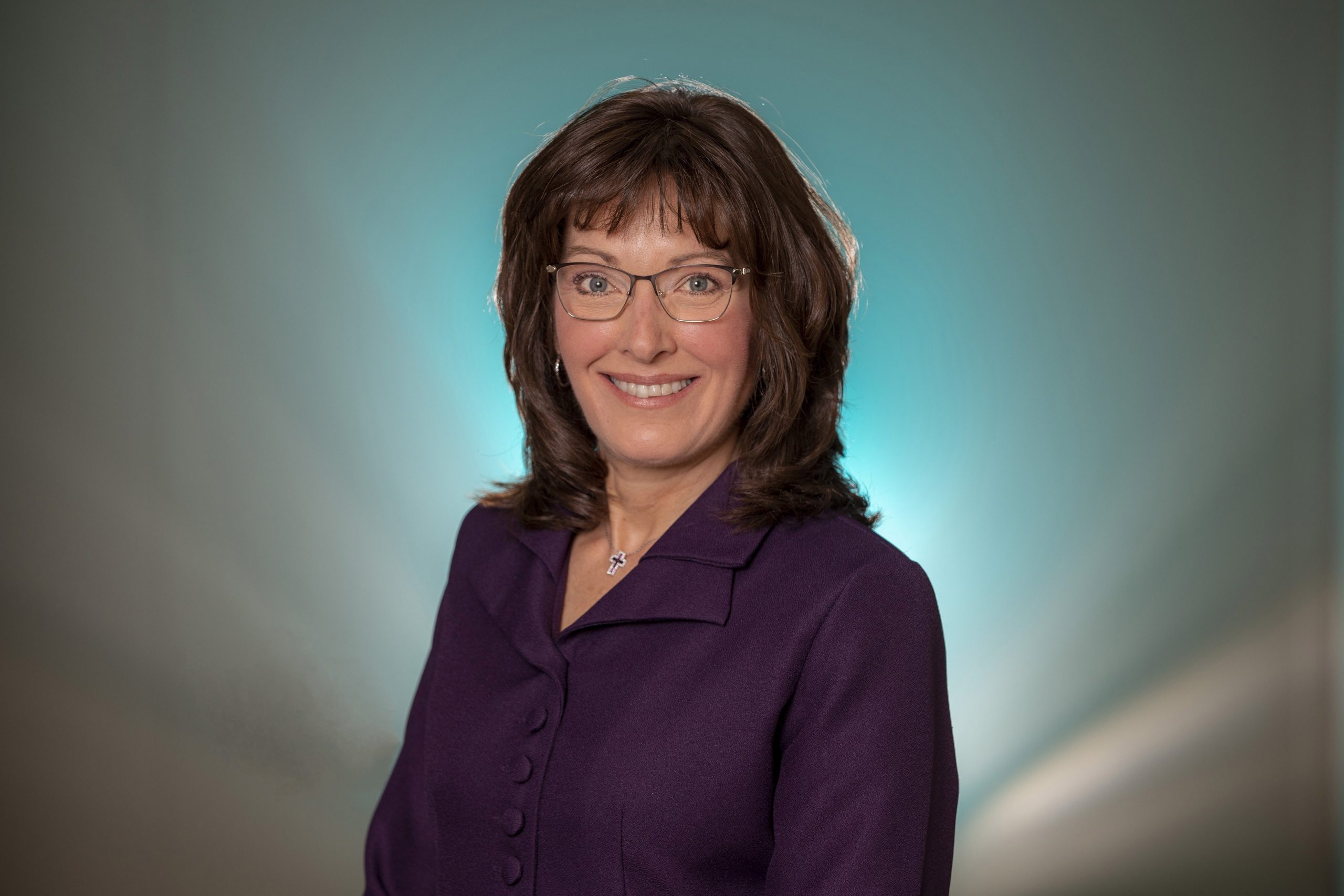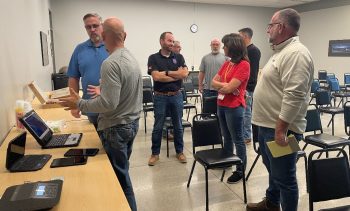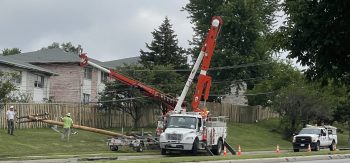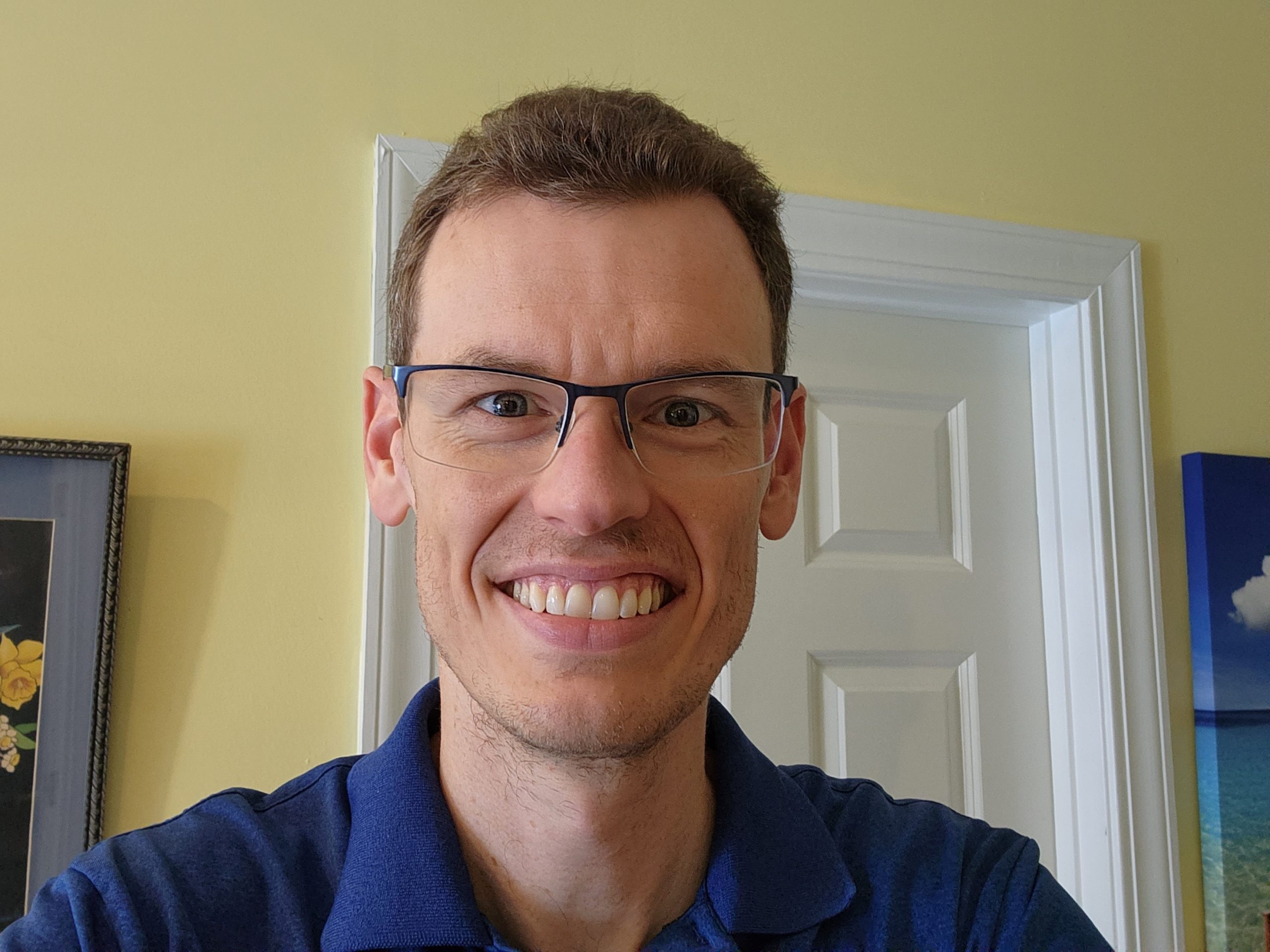Leading the charge to restore power

When a big storm pounds eastern Nebraska and causes OPPD customers to lose power, how exactly does the utility decide where to send resources first?
The answer, for many years, largely depended on an OPPD storm response veteran, Sharyl McGuire, and her team.
McGuire, senior director of operations support, has served in a variety of positions. One of those roles involved overseeing the Distribution Damage Assessment Team (DDAT), a high-stakes job that placed her and others at the forefront of some of the biggest storms in the utility’s history.
“It really fills you with purpose,” she said. “After the storm, you say, ‘Wow, look what we accomplished.’ Not everything goes smoothly, and not everything is absolutely perfect, but everyone works so well together.”
OPPD’s goal during outages, obviously, is to restore power to as many customers as possible, as soon as possible.
Enter the DDAT. In groups of two, a driver and a note-taker, team members venture out to determine the extent of the damage. They report back to the DDAT manager – McGuire, in this case – to build a picture of where OPPD needs to send crews first. The result is a more efficient response tailored to the situation in the field and, ultimately, faster restoration times.
“We’re out in front of the line crews, trying to get them to the right spots so we’re not wasting their time,” she said. “It’s important that we get them to the damage so they can repair it and restore power.”
In her role, McGuire worked at OPPD’s command center with the storm coordinator, customer service leaders, executives and corporate communications experts who relay information to the public.
A tough job
The work can be intense. When a huge wind storm hit OPPD’s service territory in July 2021, McGuire and others put in 100-hour weeks for two weeks straight.
“The thing that really sticks out in my mind is how everyone just comes together to work on the restoration,” she said.

“I remember working 16-18 hour days and not being tired or crabby because everyone was just so energized to get the power back on.”
In a typical storm, McGuire examines the affected circuits along with the storm manager and construction manager. Once they choose the circuits to patrol, she sends out DDAT crews composed of electrical system designers, engineers and others.
In the old days, the teams would use printed maps of the circuit. They drove around neighborhoods, marking where wires and poles had fallen. Now, they note it electronically in a program that sends the information immediately to the command center. Computer programs calculate how many resources both internal and external OPPD will need to fix the damage quickly.
The damage assessment team also helps sort through inaccurate calls. Sometimes, during a major storm, reports of broken poles will come into OPPD, but when crews arrive, they find no damage to local poles. The DDAT crews confirm each report, saving crews time and allowing them to respond to outages more efficiently.
Leading under pressure to restore power
The most stressful moments come at the beginning. No one knows the full extent of the damage or what to expect. Pivotal, game-time decisions come quickly. How many crews are needed? What areas have seen damage? Does OPPD need to call request outside mutual aid crews to help restore power?
“Those few hours of deciding are very intense,” McGuire said. “Fortunately, we have a team that runs at a very high level. Everybody knows their role and their function, and we’re all here to help.”
Colleagues describe McGuire as collaborative, detail-oriented and people-focused.

McGuire always kept close track of who was out in the field surveying damage, how long they worked and what they were doing, said Guy Lucey, manager of distribution engineering for customers.
That attention to detail after big storms proved invaluable later, when OPPD sought damage assistance from the Federal Emergency Management Agency. With all the proper documentation in place, OPPD qualified for reimbursement that saved the utility – and its customers – a lot of money.
“It was cool to watch her in action,” said Lucey, who shadowed McGuire during one storm for training purposes. “She had to coordinate with so many different groups, help our operations and communications teams, and work with the DDAT team to make sure we were covered. She does a really good job of leading by example and keeping safety a top focus.”
Seth McClintock, an OPPD principal engineer, said McGuire always “kept an eye on the people side of things” and made sure employees were doing OK as they worked to restore power. At the same time, she gave clear, concise instructions to guide the teams.
“You’re in a high pressure situation, but it’s never frustrating or anything like that,” said McClintock, who also helped with storm restoration. “Sharyl was always pretty even-keeled and detailed oriented.”
An unconventional path
As far back as high school, McGuire enjoyed science and math. She initially planned to go into health care, studying at the University of Nebraska Omaha to become a physical therapist. But she eventually gravitated toward engineering.
Because of the credits she had already accumulated, McGuire earned a general science degree and started working toward an engineering degree. OPPD hired her for an engineering co-op on its distribution engineering IT team. There, she helped build software that OPPD distribution engineers use to manage assets.
Then a programmer analyst position came open at OPPD – essentially the same job she was already doing in her co-op, but in a different department. McGuire accepted the position in 1997 and spent the next three years juggling work and studies for her civil engineering degree.
From there, she became a design engineer for OPPD’s distribution engineering team. The team focuses on mainline circuits that deliver electricity to homes, schools and businesses. She rose through the ranks, to a group supervisor and then department manager.
The department she managed designed and issued work orders to improve OPPD’s distribution system, whether through new circuits to meet rising demand or measures to fortify existing distribution circuits. Her team adopted design practices to minimize galloping power lines during wind storms, a big cause of damage and outages. She joined the Distribution Damage Assessment Team in 2011.
McGuire also is leading, with several others, OPPD’s efforts to adopt automated metering technology. That technology will allow direct communication between the utility and customer meters and help OPPD pinpoint outages faster. She recently assumed her new role as Senior Director of Operations Support, leading several groups that manage and support all the construction work along with operations and construction training for the Utility Operations business unit.
A little guidance
For those who might follow in her footsteps, McGuire offers simple reassurance.
“It seems like it’s going to be super-stressful, and you know there’s a lot of responsibility, but there are so many team members who have your back,” she said. “Nobody at OPPD wants to see anyone else fail. Even if you seem like you’re struggling, somebody’s going to pick you up, somebody’s going to talk you through it. And if you have questions, you can always ask other team members. It’s what makes the OPPD storm team so successful in restoration.”

Grant Schulte joined OPPD as a content generalist in 2022. He is a former reporter for The Associated Press, where he covered the Nebraska Legislature, state politics and other news for a global audience. He is a graduate of the University of Iowa and a proud Hawkeye. In his free time he enjoys running, reading, spending time with his wife, and all things aviation.
View all posts by Grant Schulte >







